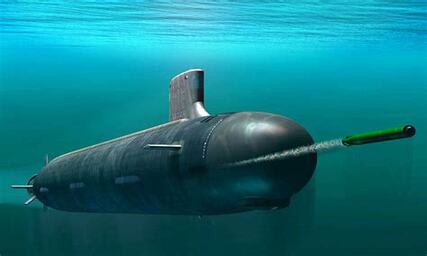|
There are many aspects to the latest Australian defence stuff-up, a.k.a. the cancelled French submarine contract and its replacement with the AUKUS agreement. (This agreement promises Australian-UK-USA collaboration on building nuclear powered submarines for the RAN.) Here are some early thoughts: 1. The poor project management of the French deal, including lack of Australian ministerial & departmental control over costs/capability/delivery, was predictable. Indeed, it was predicted. 2. $2.4 billion of ‘sunk costs’, i.e. already spent (+ cancellation fee) has produced zero defence capability. 3. Because Australia’s existing submarines are aging, and the threat environment is said to be significantly and quickly deteriorating, there will likely be a strategic capability gap before Australia can build the promised AUKUS boats. Governments had earlier said this gap would be an unacceptable risk to national security. There’s no detail on how this gap will be closed, although there’s speculation that in the medium term Canberra might lease US or UK subs. But everything seems very vague, with substantive decisions pushed well into the future, presumably to be made (or not) by future governments. 4. Given the sometimes shambolic record of Australian military procurement, I wouldn’t be surprised if the proposed deal never gets translated into hardware. 5. We pissed-off a significant ally partly because of extraordinarily inept diplomacy. (Has anyone heard from the foreign minister yet? Where is she?) 6. The strategic rationale for the switch in policy is that when the contract was signed in 2016, Canberra could not have predicted the changed strategic circumstances (primarily the rise of China). This is wrong. In fact, it’s laughable. It exposes very poor policy making. 7. As far as I know, no one is being held accountable. 8. Looking further into the future, the deal puts the nuclear non-proliferation regime under more pressure. Although nuclear weapons are not part of the package, and although so far there’s no breach of the Non-Proliferation Treaty, there’s no evidence serious consideration has been given to the wisdom of spreading militarised nuclear technology further around the Asia-Pacific. In my view, nuclear proliferation is the world’s most worrying man-made problem. 9. A look at the map would show Indonesia has more of a strategic rationale for defending against China. What would Canberra think if Djakarta adopted Australia’s logic to go down the same path to nuclear powered submarines? 10. It’s been said the deal will upset or annoy Beijing. However, while there’s no point in gratuitously provoking the PRC, nor should it be granted a veto over Australian defence policy. Moreover, in terms of throwing fuel on to a regional arms race, for the last decade or more Beijing has been the leading culprit, and it is perhaps the main reason Australia has decided to move its military power up a gear. 11. Assuming the arrangement reaches fruition, it will presumably lead to revised strategic concepts for both defence of Australia and power projection, as well as other knock-on effects in defence policy, including implications for the surface fleet, army and air force. It’s unclear just what the final picture will look like here. (An issue that will no doubt be complicated by technological changes and third-party behaviour.) Comments are closed.
|
Archives
March 2024
|

 RSS Feed
RSS Feed
